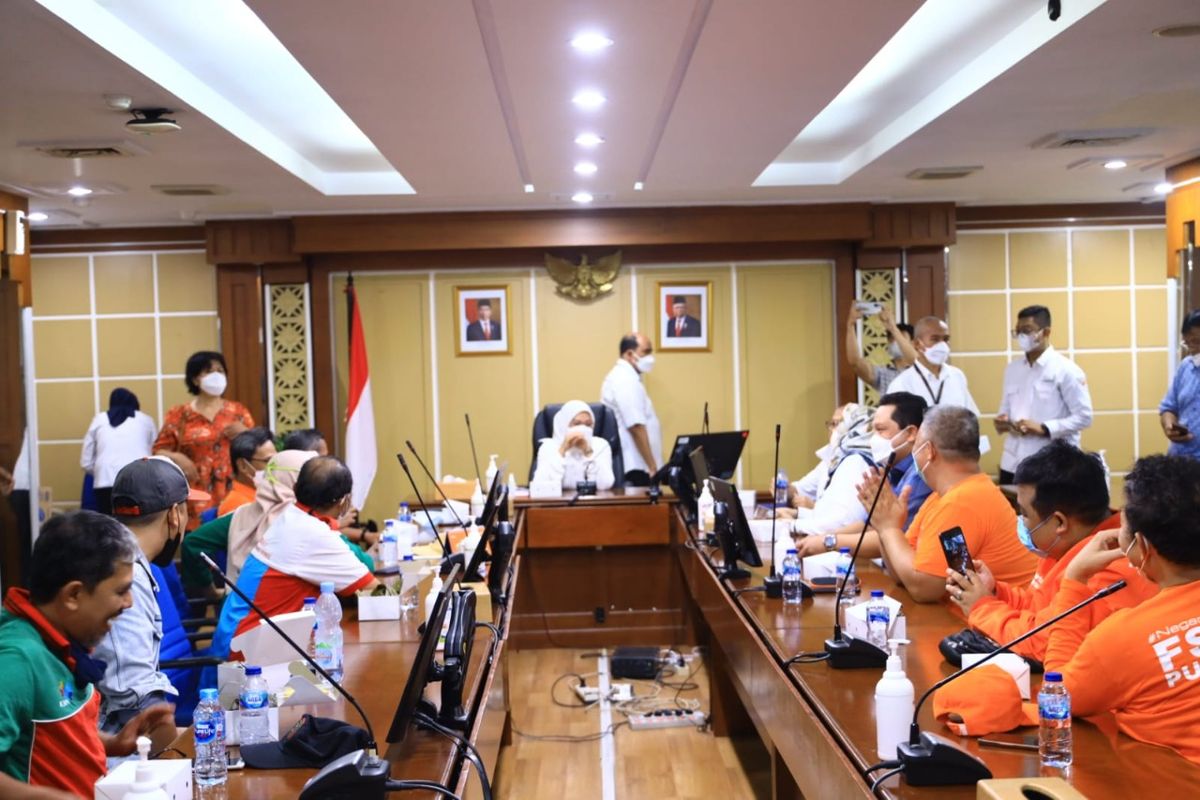Indonesia’s Pension Funds: Between the Long Run and Short Run Goals

KOMPAS.com – Indonesia’s plan to change regulation on the age-related rule to withdraw pension funds has attracted interest from the public at large.
Initially, the Manpower Ministerial Regulation (Permenaker) No.2/2022 on procedures for payment of the old-age benefits (JHT) allows access to pension funds only after the employee is 56 years old, among others. This regulation has been put in place together with the introduction of the new unemployment benefits program (JKP) as part of the implementation of the Omnibus Law that serves as short-term protection for workers losing jobs, particularly during the pandemic. With the policy combo of JHT and JKP, the government ensures anticipation of both the long-term and short-term fluctuations that might affect the labour market.
While the ministerial regulation has officially been retracted, there are many aspects we can learn regarding the management of pension funds, especially during the pandemic that requires some flexibility. The regulation of pension funds might require a balance between short-term and long-term targets.
Also read: Indonesia to Develop Fisheries Centers With Funds From Japanese Grant
Pension funds have been an integrated part of propelling economic growth in major economies. A study by the Netherlands Bureau of Economic Analysis in 2020 showed that the growing value of pension funds leads to deeper capital markets allowing firms for alternative financing. The sustainability of pension funds, as discussed by Lin in the Journal of Macroeconomics, plays an important catalyst to maintain financial sustainability and reduce the burden for future generations.
In Indonesia, the strengthening of pension funds should become a critical agenda. The current penetration rate of public pension funds is still lower than in other countries. A study by IFG Progress in 2021 shows that the total amount of the mandatory JHT and pension security benefit (JP) pooled by the worker’s social security provider (BPJS TK) is only about 2.73 percent of gross domestic product (GDP) in 2020. This ratio is far below other countries such as India (7.20 percent), Thailand (12.74 percent), Brazil (14.97 percent), and Malaysia (61.42 percent).
Moreover, the public at large might also question the decision of the threshold: why is it set at 56 years old? Why not 60, for instance.
Pension withdrawals in other countries
Let’s compare the arrangement regarding withdrawal policy in other countries like Malaysia and Chile. Malaysia is selected due to its geographical proximity, whereas Chile has the same labor force participation in the manufacturing industry as Indonesia, amounting to 20 percent.
Malaysia’s Employees Provident Fund (EPF) manages the largest mandatory pension fund in the country. They separate pension accounts into two; Account 1 comprises 70 percent of the total pension that cannot be withdrawn up to age 55. While Account 2 makes up about 30 percent could be claimed early for specific purposes such as housing, education, and hajj pilgrimage. Due to the Covid-19 pandemic, people who have lost jobs could claim early their retirement savings up to 10 percent from Account 1.
In Chile, to induce fair market competition, the mandatory pension fund is not managed by a public entity. Chileans can instead opt from various private providers that operate on a national basis and transfer to another pension fund administrators and portfolio choice at any time. Normally, the pension fund is not accessible before the retirement age. However, responding to the pandemic, they also introduced reforms allowing the withdrawal of up to 10 percent of the fund in three rounds of withdrawal.
Also read: Manpower Minister Ida Fauziyah Promises 5.6 Million Jobs for Indonesians
The key here is the flexibility of the system, ensuring a subsistence level of living by allowing partial pension funds withdrawn for those vulnerable populations impacted by the pandemic while simultaneously still ensuring the availability of their old-age savings. It applies to both government and private-sector-led pension fund management.
Benefits of the pension fund
The second aspect that concerns the benefits of the pension is how long can expect pensioners to benefit from their pension funds. While the threshold of withdrawal age policy differs globally, we might be interested to calculate the “age-premium” as the gap between pension withdrawal age and the life expectancy age.































